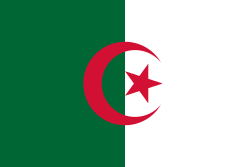This article includes a list of references, related reading, or external links, but its sources remain unclear because it lacks inline citations .(March 2021) |
| Hawfi | |
|---|---|
 | |
| Native name | الحوفي əl-ḥawfī |
| Other names | Tahwīf |
| Cultural origins | Tlemcen (Algeria) |
| Typical instruments | |
| Part of a series on the |
| Culture of Algeria |
|---|
 |
| People |
| Mythology |
| Art |
Hawfi is a form of female vocal folk music and poetic genres originated in Tlemcen (Algeria). [1] [2] It is known to have existed from the 14th-century, when it was mentioned by Ibn Khaldun in his work Muqaddimah . It is often sung to the accompaniment of a lute.